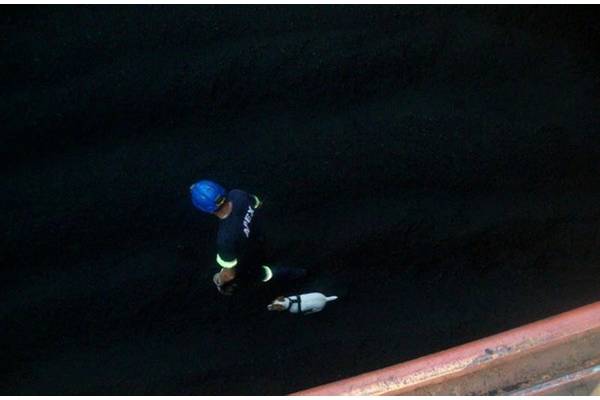
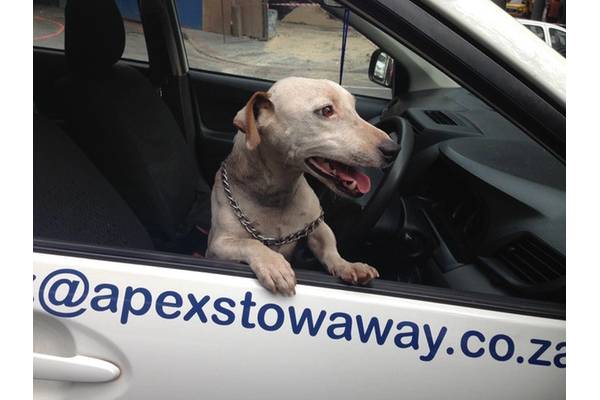
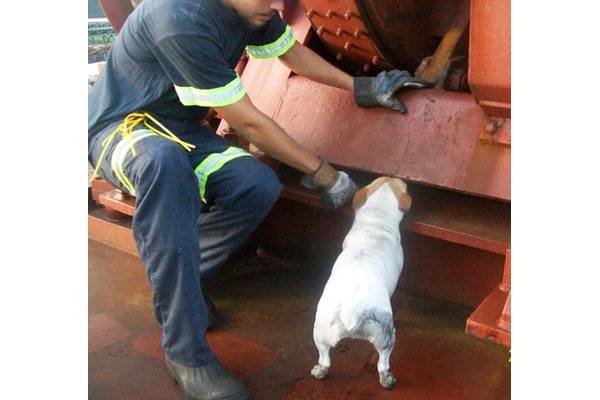
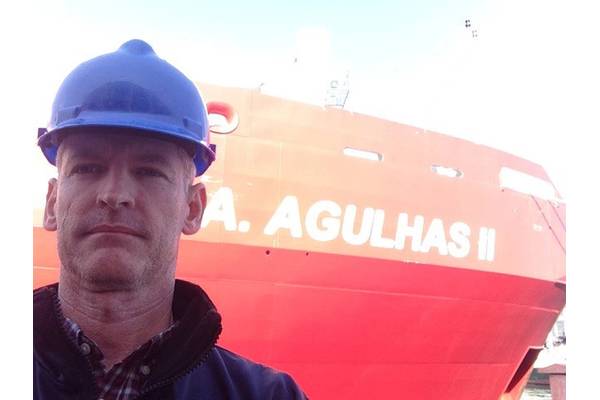
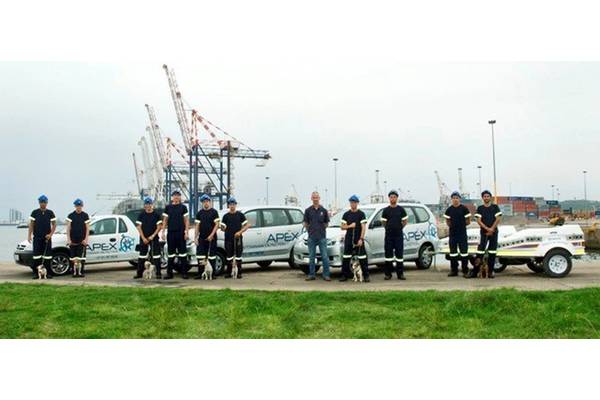

Stowaways on ships can present a cost and logistics problem for shipowners and ship masters, particularly when trying to find a friendly port willing and able to accept and help re-patriate these maritime trespassers. Costly and inefficient in the best circumstance, if a ship has to re-route and come off trade, the financial dent grows rapidly. Enter Patrick Mooney, owner, APEX Stowaway Detection and his team Jack Russell terriers, as they are proving instrumental in finding and removing stowaways in South African ports.
Prior to starting Apex Stowaway Detection, Patrick Mooney was a police officer in South Africa for 20 years, and as a part of the K9 unit had ample exposure fielding calls to remove unwanted individuals from ships in port.
“I worked in Durban on the East Coast of KwaZulu-Natal, and we often had dealings pre-9/11 and the ISPS code, to go and remove unwanted individuals that had boarded ships illegally in the port.”
After 9/11, with heightened security barriers and measures, Mooney said “the problem actually got worse.”
This was the impetus to start his business, first as a side-gig and eventually as a full-time endeavor with a full staff of people and dogs.
“When I wasn't working, I trained a German shepherd that I had to locate trespassers on a ship,” said Mooney. At the time he had little maritime or shipboard experience, so he had to create his own training grounds in old warehouses to teach the dogs. At the same time, he started cold calling ship in the harbor and local port agents, finally getting a bite from a ship in Durban. “I came down and located six individuals hidden on that vessel. Word started to get around, and I started to get quite a few calls. (At the time) it was myself and two mates that were also policemen helping out, and as far as I'm aware, we were the first people doing it in a private capacity in the world. It grew and grew until the point where I resigned from the police in 2009, and formed APEX Stowaway Detection.”
Today he said business is strong, with approximately 100 staff servicing 85 to 110 vessels per month.
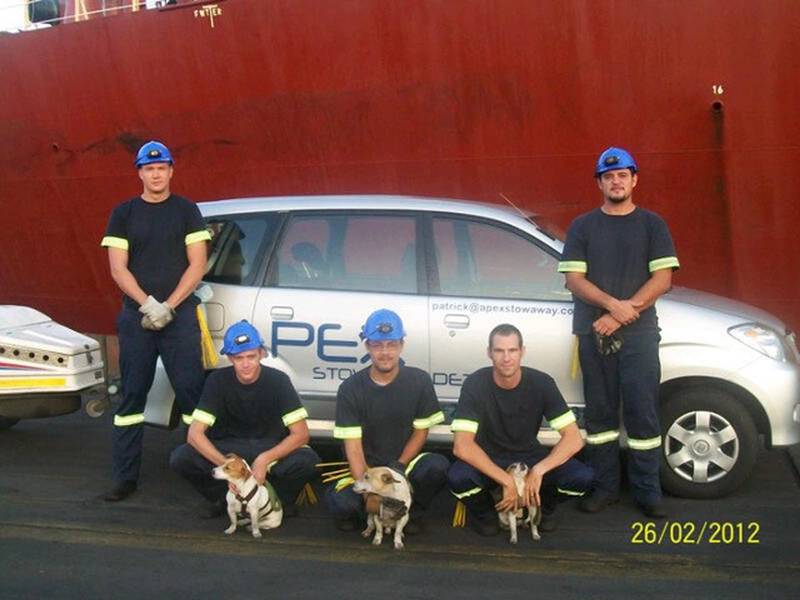 Image courtesy Apex Stowaway DetectionThe Problem
Image courtesy Apex Stowaway DetectionThe Problem
According to Mooney, the stowaway problem he and his colleagues are seeing in South African ports is not stowaways looking to exit the country for a better life, rather the province of immigrant groups that use the gambit as a business model, demanding cash payments before boarding repatriation flights.
“In the early 2000s, if we had one stowaway in six months, it was a big deal. But slowly, the numbers increased,” said Mooney.
He said that once the stowaway gets on and the ship sails with them on board, the ship now takes responsibility for that individual, including finding a port that's friendly and accommodates in the repatriation of the stowaway.
“There's the direct costs, which will relate to the repatriation of the stowaway: getting a launch, getting escorts, getting security, getting tickets, hotel costs, hiring the company that will handle them at the airport, getting them back across … these costs vary.”
He said that in 2015 there was a stowaway repatriated and the cost at the time was $24,000; in July 2022, two stowaways were repatriated to Tanzania at a cost of about $123,000.
“That’s is the first part of it; the second part of it is the off-hire, said Mooney. “If a vessel has stowaways and it has to divert, it will go off-hire from the charterers, because the security and the stowaways on board are the direct responsibility of the owners of that vessel. Suddenly the owner's now covering all those hire costs, whether it be fuel, salaries, the day-to-day running of the vessel. And that is where the costs now become astronomical.”
Enter the COVID pandemic, where even seafarers assigned to the ship were not allowed to disembark at a majority of ports globally, and the cost of a stowaway rises exponentially. “We've had incidents where stowaways have been on board a vessel for nearly a year; it's a serious issue for a ship owner,” said Mooney.
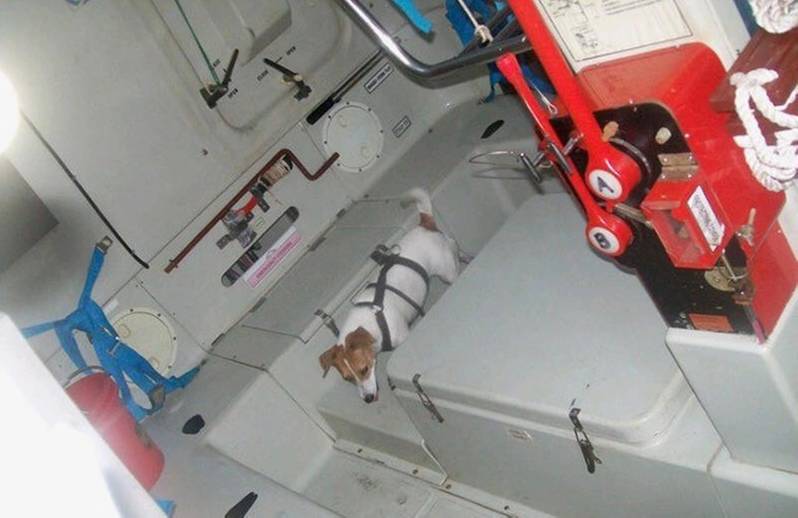 Image courtesy Apex Stowaway Detection
Image courtesy Apex Stowaway Detection
Gone to the Dogs
When Mooney started his business, German Shepard was the breed of choice primarily because that’s what he worked with in the police department. “They're intelligent, they're quick learners and I was familiar with the way we trained them.”
But the shipboard environment, with a multitude of small spaces and below deck heat that can easily go north of 100F in the region, was not optimal for the breed. “I quickly realized using a German shepherd on board a vessel was just not practical; the dog would be overheated within 15 minutes and he couldn't work, plus we had the issues of getting them into the cargo hatches,” said Mooney.
Personally, he had a Jack Russell terrier, dogs that were bred for hunting foxes in packs, dogs that are quick-learners, are very tough and can go long periods without resting.
“We had a vessel in Richards Bay where the team pulled in, they got the dogs out of the trailer, they put the harnesses on them and they go up the gangway, straight up the superstructure and started barking at an air conditioning duct,” where, after having the crew cut it open, two stowaways were found, said Mooney. “If they know they're going to work, they get fully amped up. And they're practical. We have harnesses made for them, they clip on the guys who are doing the searching. They can climb up and down ladders into cargo holds; they've got a torch on one side and a Jack Russell on the other hip. I mean, that's it. It's as simple as that. It's not rocket science. They're very reliable.”
Different ship sizes and types call for dramatically different sweep patterns, as checking out a bulk carrier, for example, can take dramatically less time than a RoRo packed with vehicles. That said, Mooney estimates a team of 6 people and 4 dogs can clear a vessel in two to three hours.
“We would go on board with at least six to eight hours prior the departure time of that vessel, and we will tell the captain, "Once those stevedores finished in cargo hold one, we'll put our team in there."
Once the sweep is completed, seals are placed on all access points, hatches and manholes. “We'll move on systematically as they're finishing (loading the ship), because with ship owners, when they’ve finished loading the ship's cargo, they want it off the berth and they want it sailing ASAP.”
In regards to costs for his services, Mooney said it varies based on size of the vessel and his team’s time onboard, but for a normal sweep “you're looking at around $600 approximately.”



